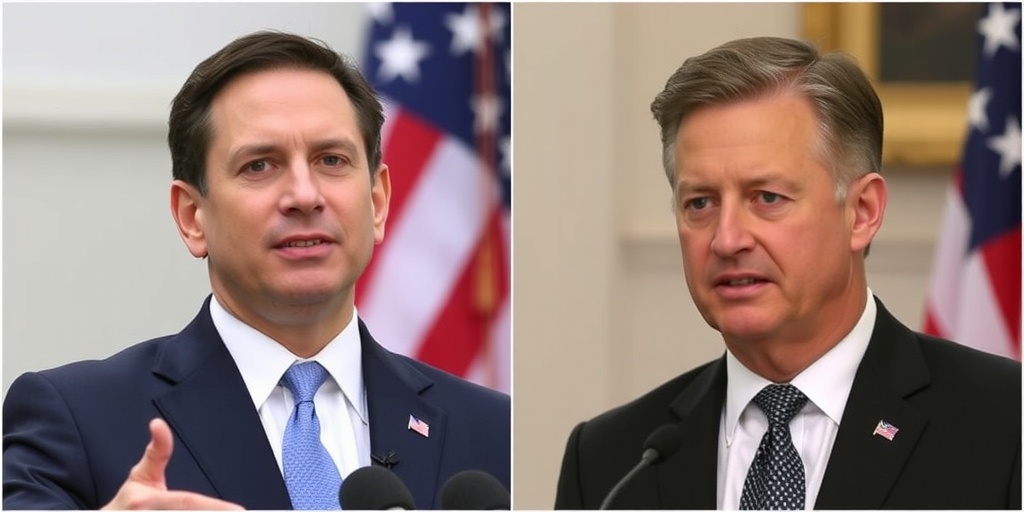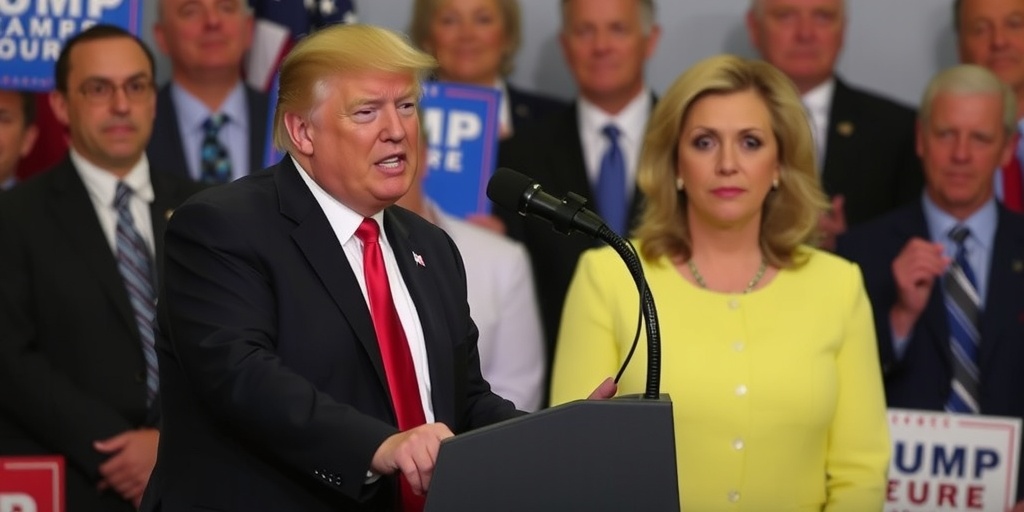Now Reading: Federal Leases Restored Following Pushback on Musk Team’s Cuts
-
01
Federal Leases Restored Following Pushback on Musk Team’s Cuts
Federal Leases Restored Following Pushback on Musk Team’s Cuts
Title: Government Lease Terminations Under Trump Administration Cause Controversy and Reversals
In a significant turn of events during President Trump’s initial week back in office, inquiries into government efficiency led by Elon Musk’s newly established Department of Government Efficiency highlighted an early initiative aimed at cutting costs. The focus centered on canceling leases for federal buildings deemed underused, sparking intense debate and concern.
Mr. Musk’s department has reportedly taken credit for terminating leases across hundreds of federal properties nationwide, impacting various government agencies, including the Internal Revenue Service (IRS), Food and Drug Administration (FDA), Energy Department, and the National Park Service. Initial estimates suggest that these measures could save the government around $500 million. However, the effort has faced substantial hurdles over the past few weeks, particularly from lawmakers and agency officials voicing worries that such actions could jeopardize essential governmental services, especially in light of the administration’s recent mandate requiring federal employees to return to their offices.
Officials at the General Services Administration (GSA), responsible for managing federal real estate, recently announced a reversal of more than 100 lease cancellations. This decision includes critical facilities such as an Energy Department office in New Mexico that oversees nuclear waste management and another office relied upon by the U.S. Army Corps of Engineers for storm response in Florida.
This abrupt change comes on the heels of the GSA’s earlier release of a list detailing over 440 federal properties proposed for potential sale, including various cabinet department headquarters. The following day, the agency retracted the entire list with minimal explanation, further illustrating the chaotic nature of the administration’s strategy to streamline the government’s real estate portfolio.
Administration officials maintain that the objective is to generate savings for taxpayers through the sale of “underutilized” spaces and the termination of leases for what they describe as “functionally obsolete” buildings. Since the beginning of Trump’s second term, the GSA has issued 827 lease terminations while retracting 117 of those. However, they have not disclosed a comprehensive list of the canceled leases.
Stephanie Joseph, a GSA spokeswoman, emphasized that the agency is still evaluating the cancellation of over 1,000 leases that agencies no longer consider vital, claiming that these actions could lead to significant taxpayer savings. She mentioned that the reversal of some termination notices was made after consultations with various agencies, underscoring the need for more information before proceeding with lease terminations.
Contrary to the GSA’s figures, Musk’s team has reported 793 lease terminations across the country. Responses from the White House regarding the discrepancies were not forthcoming.
Some members of Congress, including Republicans, have expressed reservations about the administration’s drive to close federal buildings in their constituencies. Representative Tom Cole of Oklahoma noted that after discussions with Musk’s team, he successfully advocated for the retention of several local offices, including the National Weather Center in Norman and the Social Security Administration office in Lawton, despite these facilities still appearing on the DOGE’s cancellation list.
Lawmakers, particularly from New Mexico, raised alarms about specific lease terminations, such as one concerning an Energy Department office that oversees the Waste Isolation Pilot Plant—America’s only permanent underground repository for nuclear waste. Senator Ben Ray Luján critiqued the lease termination attempt, labeling it as “reckless” and detrimental to national security and environmental safety, reiterating his commitment to protecting the federal workforce against these administration-induced uncertainties.
The GSA has since retracted numerous notices intended to terminate specific department leases, thus promising unimpeded functionality of these critical operations. Various federal agencies have reported successful reversals of lease cancellations while actively working to restore more, citing the significance of their missions and the necessity for office spaces following an end to remote work policies.
A specific instance underscored the potential repercussions of lease cancellations: an office managed by the U.S. Army Corps of Engineers in Jacksonville, Florida, was originally slated for termination during peak hurricane season, raising concerns about the agency’s emergency response capabilities for the state.
Despite the tumult surrounding these lease actions, some facilities listed for termination are reportedly not actually closing. For instance, an FDA office in St. Louis, although still mentioned in the termination lists, has confirmed it will remain operational.
As the Trump administration pushes forward with its intentions to downsize its real estate portfolio and save costs, it’s essential to note that the challenges associated with this initiative are not unprecedented. Previous administrations, including Biden’s, have sought to reduce the federal real estate footprint, amid a broader context of financial mismanagement that has left maintenance backlogs soaring to around $370 billion.
Experts like David Marroni from the Government Accountability Office emphasize that while there are valid opportunities for reducing federal real estate, it is crucial that these actions follow a comprehensive plan to maximize savings. With various indicators suggesting forthcoming changes under Trump’s leadership—including a mandate to shrink the federal workforce and reinstate in-person employee requirements—the need for strategic planning becomes even more pronounced.
As lease termination efforts continue to unfold, the discourse surrounding government efficacy, fiscal responsibility, and essential services remains at the forefront of public and legislative consideration.
Stay Informed With the Latest & Most Important News
Previous Post
Next Post
Previous Post
Next Post
-
 01New technology breakthrough has everyone talking right now
01New technology breakthrough has everyone talking right now -
 02Unbelievable life hack everyone needs to try today
02Unbelievable life hack everyone needs to try today -
 03Fascinating discovery found buried deep beneath the ocean
03Fascinating discovery found buried deep beneath the ocean -
 04Man invents genius device that solves everyday problems
04Man invents genius device that solves everyday problems -
 05Shocking discovery that changes what we know forever
05Shocking discovery that changes what we know forever -
 06Internet goes wild over celebrity’s unexpected fashion choice
06Internet goes wild over celebrity’s unexpected fashion choice -
 07Rare animal sighting stuns scientists and wildlife lovers
07Rare animal sighting stuns scientists and wildlife lovers



















